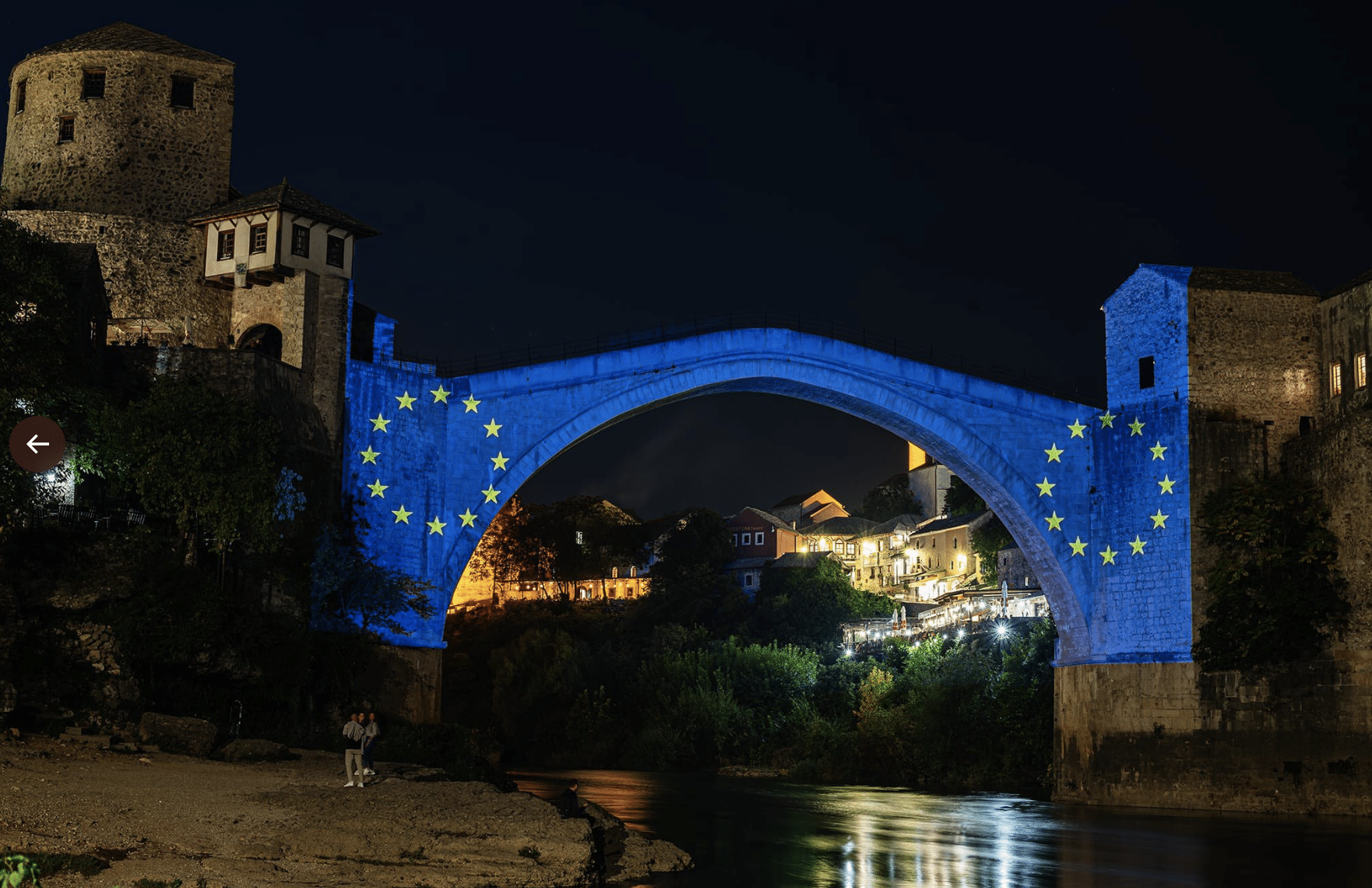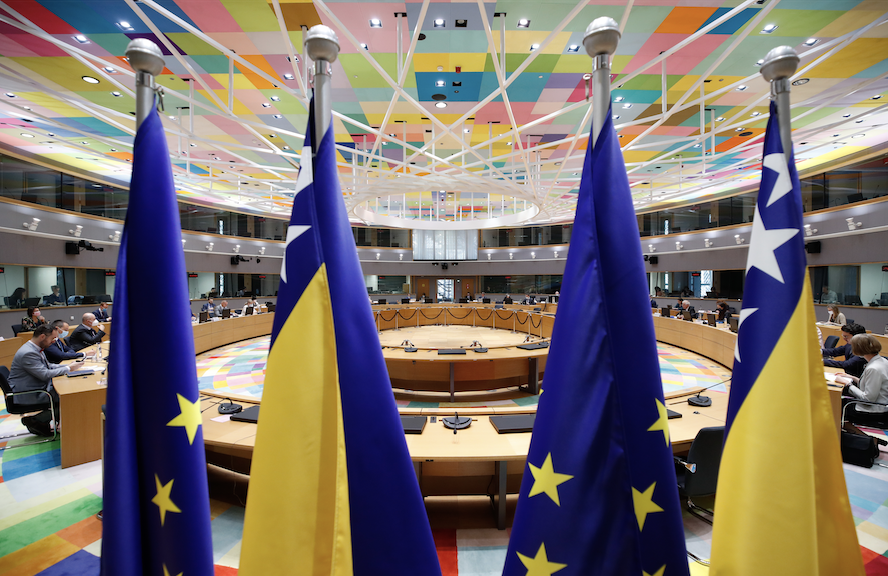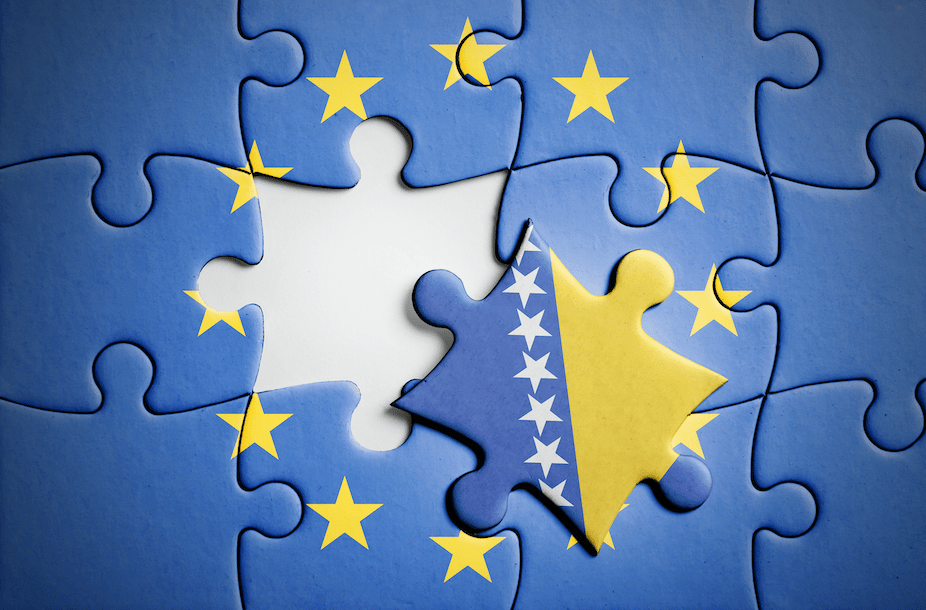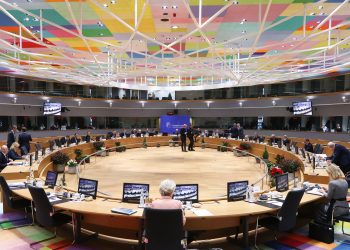Brussels – The endorsement has come, and today, “the momentum and the current window of opportunity” has been seized. The 27 EU leaders decided this evening (March 21) to give the green light to the start of accession negotiations with Bosnia and Herzegovina, unanimously endorsing the calls of the seven most open-minded member states (including Italy) to allow Sarajevo to “set out firmly on the path to the European Union.” It is a historic day for Bosnia and Herzegovina – even if the breakthrough is ‘only’ political and not technical – since the Balkan country has been waiting at the Union’s door for eight years.
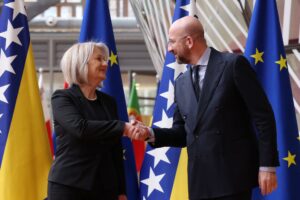
Based on the positive recommendation from the European Commission on March 12, the European Council supported the opening of EU accession negotiations; now comes the complex part. The 27 Member States called on the Commission to prepare the negotiating framework, but only “when Bosnia and Herzegovina has taken all relevant steps” indicated in the specific recommendation of the EU Enlargement Package 2022, the European Council’s conclusions state. The ball is back in Sarajevo, which will have to fulfill the 14 key priorities, and only then can the Commission implement the negotiating framework to be adopted unanimously in the General Affairs Council (which brings together the 27 European General Affairs ministers). Only then will the EU accession negotiations for Bosnia and Herzegovina be launched at the formal level.
“Your place is in our European family. Today’s decision is a key step forward on your EU path,” European Council President Charles Michel said , who posted on X a photo with Bosnia and Herzegovina’s Prime Minister Borjana Krišto (contacted shortly before the green light from Brussels). “Now the hard work needs to continue so Bosnia and Herzegovina steadily advances, as your people want,” he added. European Commission President Ursula von der Leyen also “welcomed” what she called at a press conference a “historic decision” by the 27 EU leaders: “Bosnia and Herzegovina has made impressive progress towards our Union. More has been done in the last year than in the previous ten years.” The Balkan country now “is fully aligned on governance, foreign policy, security, and defense,” confirmed von der Leyen, who also remarked on “important progress in the adoption of crucial legal texts, migration management, and dialogue and reconciliation.” The hope is that “today’s decision will lead to new further progress” on Bosnia and Herzegovina’s path towards the Union. “It is an important step to bring the country closer to the EU. An enlarged Union means a stronger Union,” said European Parliament President Roberta Metsola.
Beyond Bosnia, where does EU enlargement stand
Of the six Western Balkan countries that have begun the long road to EU membership, four began accession negotiations -Albania, North Macedonia, Montenegro, and Serbia – one has received candidate status -Bosnia and Herzegovina- and the last has formally applied for and is awaiting the response from the 27 Member States – Kosovo. For Tirana and Skopje, negotiations began in July last year, after waiting eight and 17 years, respectively, while Podgorica and Belgrade have been at this stage for 11 and nine years, respectively. After six years since applying for EU membership, Sarajevo became a candidate to join the Union on December 15, 2022, and is now awaiting the formal start of accession negotiations. Pristina is in the most complicated position since its formal request sent in late 2022: since the unilateral declaration of independence from Belgrade in 2008, five EU member states – Cyprus, Greece, Romania, Spain, and Slovakia – continue not to recognize it as a sovereign state.
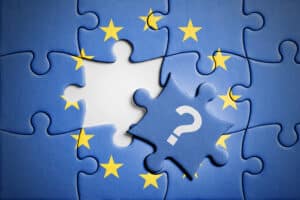 The upheaval in EU enlargement began four days after the Russian armed aggression when, in the midst of the war, Ukraine applied for “immediate” membership in the Union, with the application signed on February 28, 2022, by President Zelensky. Demonstrating the irreversibility of a process of rapprochement with Brussels as an explicit. reaction to the risk of seeing its independence erased by Moscow, three days later (March 3), Georgia and Moldova decided to follow. The European Council of June 23, 2022, approved the line drawn by the Commission in its recommendation: Kyiv and Chișinău became the sixth and seventh candidates for EU membership, while Tbilisi was recognized as having a European perspective in the EU enlargement process. In the EU Enlargement Package 2023, the Commission recommended to the Council to open accession negotiations with Ukraine and Moldova and to grant Georgia candidate status. All demands were accepted at the December EU leaders’ summit.
The upheaval in EU enlargement began four days after the Russian armed aggression when, in the midst of the war, Ukraine applied for “immediate” membership in the Union, with the application signed on February 28, 2022, by President Zelensky. Demonstrating the irreversibility of a process of rapprochement with Brussels as an explicit. reaction to the risk of seeing its independence erased by Moscow, three days later (March 3), Georgia and Moldova decided to follow. The European Council of June 23, 2022, approved the line drawn by the Commission in its recommendation: Kyiv and Chișinău became the sixth and seventh candidates for EU membership, while Tbilisi was recognized as having a European perspective in the EU enlargement process. In the EU Enlargement Package 2023, the Commission recommended to the Council to open accession negotiations with Ukraine and Moldova and to grant Georgia candidate status. All demands were accepted at the December EU leaders’ summit.
Negotiations for Turkey‘s accession to the European Union began in 2005, but have been on ice since 2018 due to backward steps on democracy, the rule of law, fundamental rights, and independence of the judiciary. The chapter on Turkey in the latest annual Enlargement Package presented in October 2022, states that it “does not reverse course and continues to move away from EU positions on the rule of law, increasing tensions over border respect in the Eastern Mediterranean.” At the NATO summit in Vilnius at the end of June, the Turkish president, Recep Tayyip Erdoğan, tried to force his hand, threatening to bind Sweden’s membership in the Atlantic Alliance to when Brussels opens Turkey’s path back to the EU. The blackmail failed, but the dossier on Ankara was addressed in a strategic report special meeting in Brussels.
How the EU accession process works
The EU enlargement process begins with a non-EU state submitting a formal application for membership to the rotating presidency of the Council of the European Union. Union membership first requires a successful examination of the Copenhagen criteria (established at the European Council in the Danish capital in 1993 and strengthened by the EU leaders’ meeting in Madrid two years later). These criteria are divided into three groups of basic requests that the Union addresses to the country that has applied for membership: rule of law and democratic institutions (including respect for human rights and the protection of minorities), stable market economy (ability to cope with market forces and competitive pressure), and fulfillment of its obligations (effectively implementing the body of EU law and meeting the objectives of political, economic and monetary union).
Having obtained the positive opinion of the Commission, the country is given candidate status with the approval of all members of the Union. The Commission then recommends to the EU Council to open negotiations, which, again, require the unanimous go-ahead of the member countries: this allows to open the negotiating chapters (varying in number) to prepare the candidate to implement the necessary judicial, administrative, and economic reforms. When the negotiations are completed, and EU enlargement is possible in terms of absorption capacity, there is the signing of the Accession Treaty (with terms and conditions for accession, including safeguard clauses and transitional provisions), which must first be approved unanimously by the European Parliament and the Council.
English version by the Translation Service of Withub
